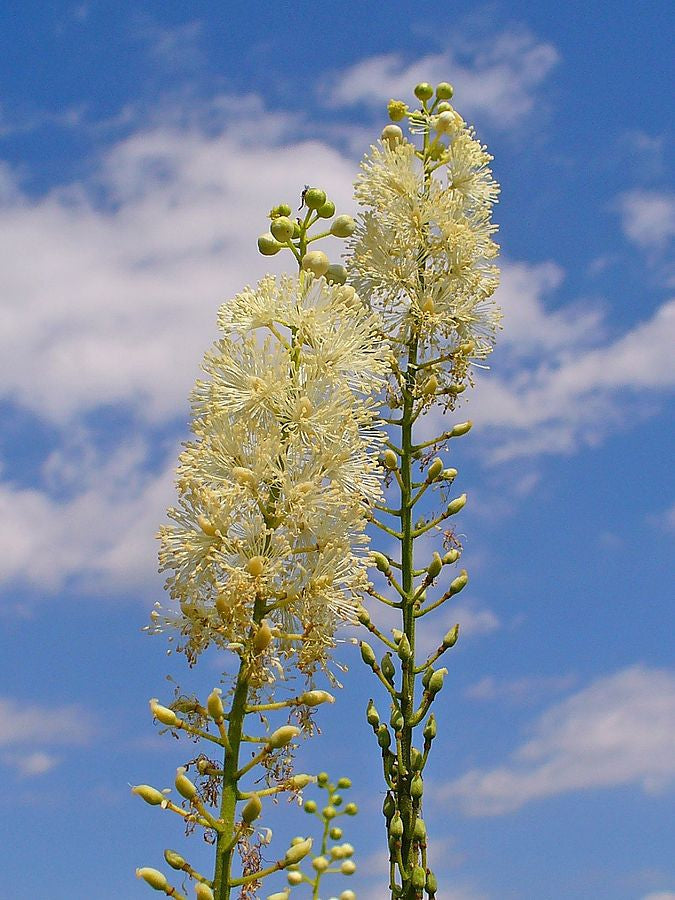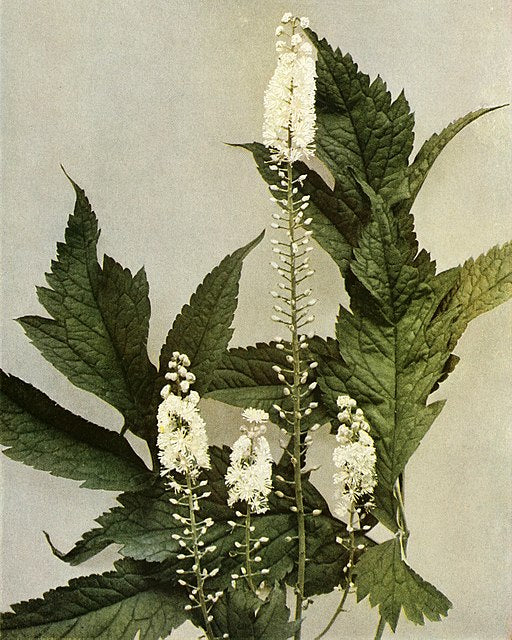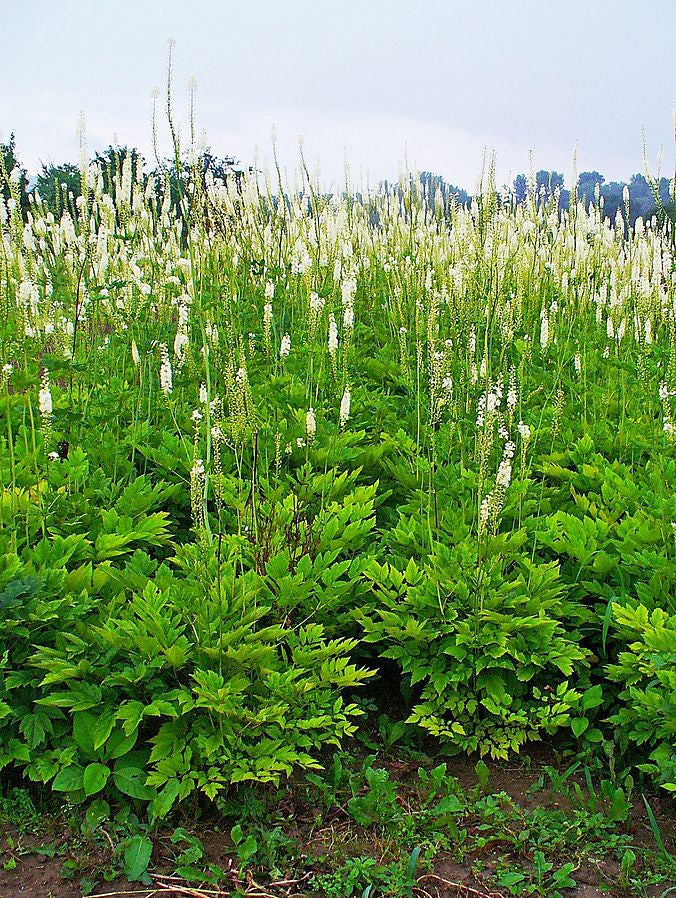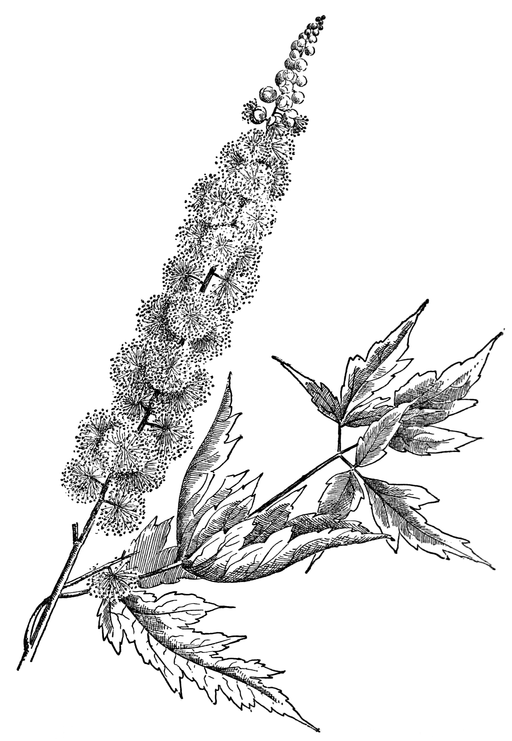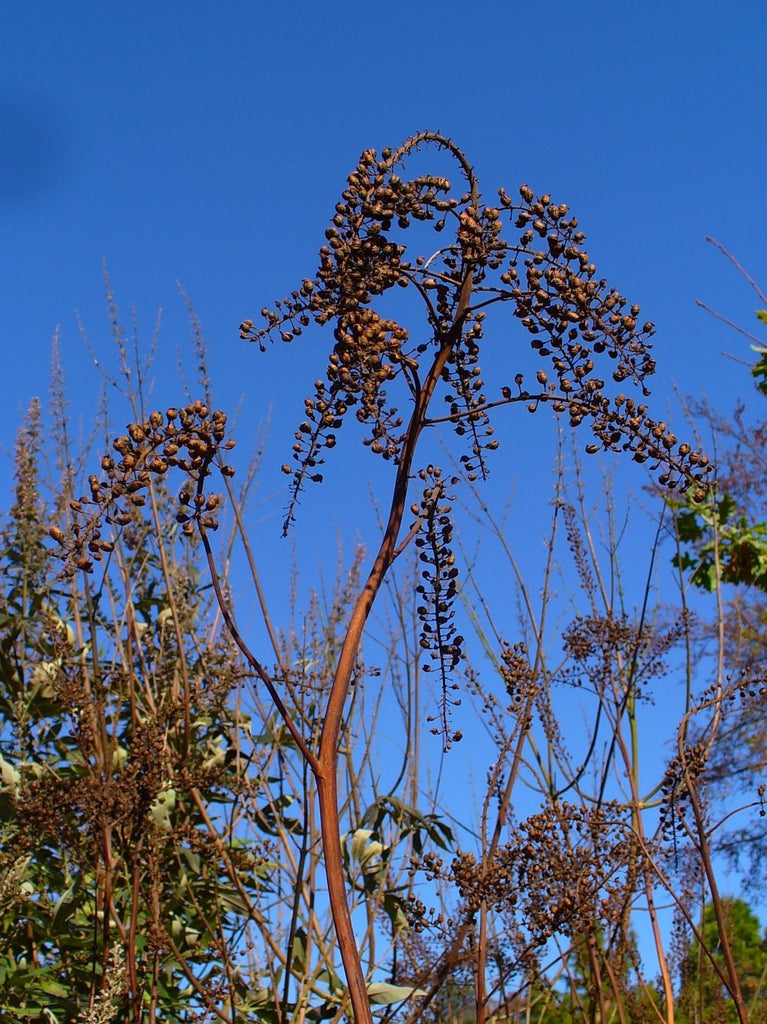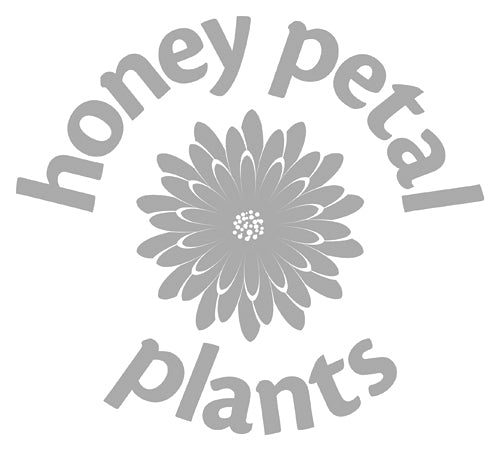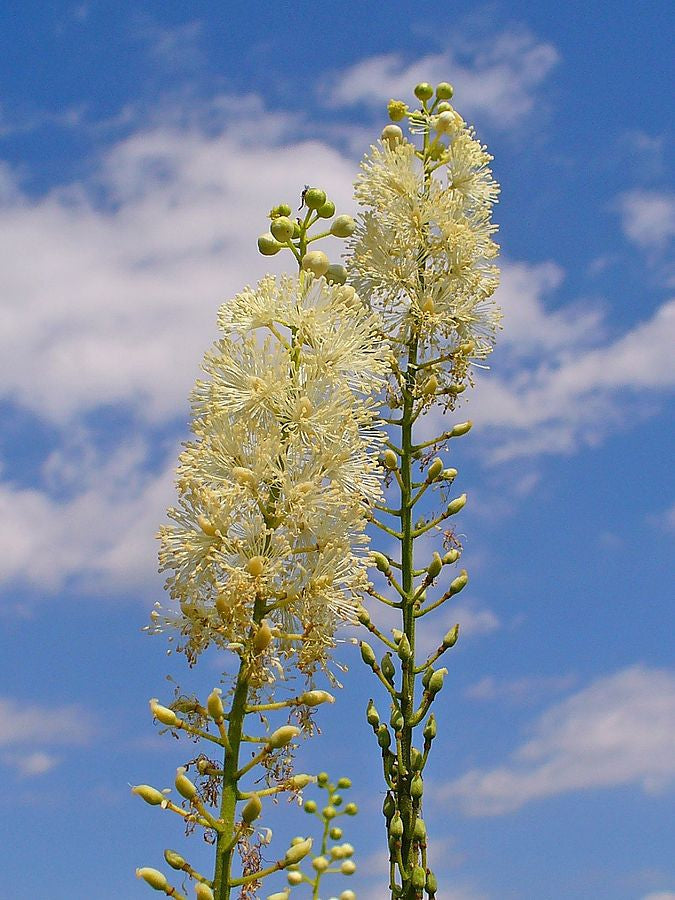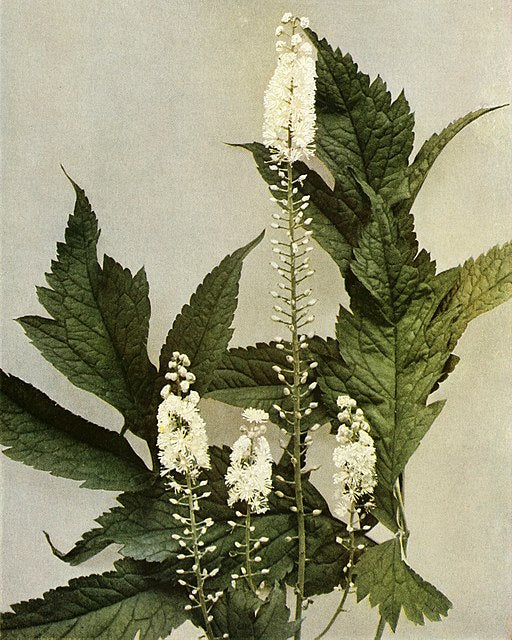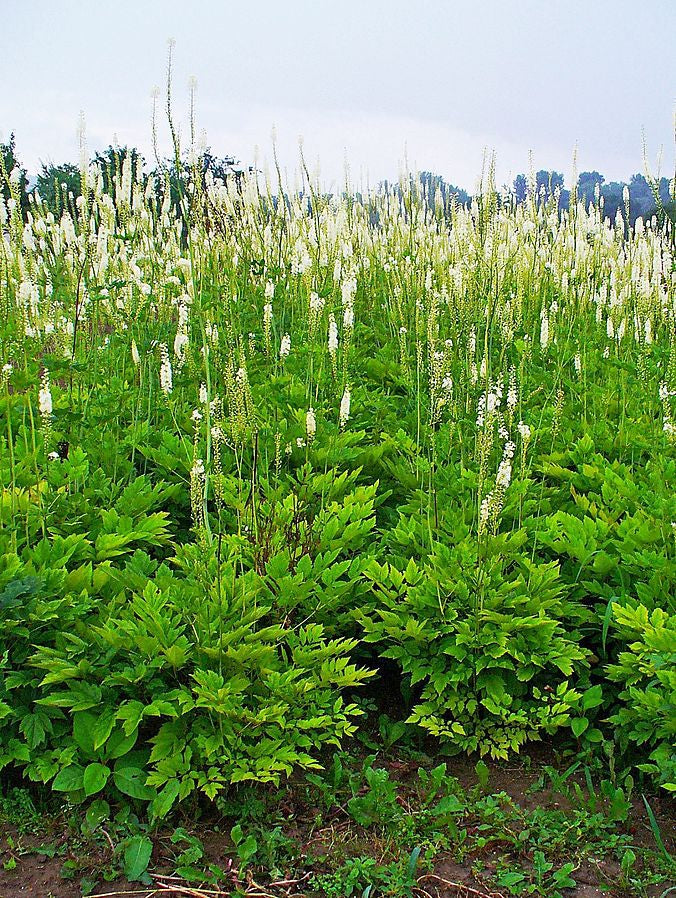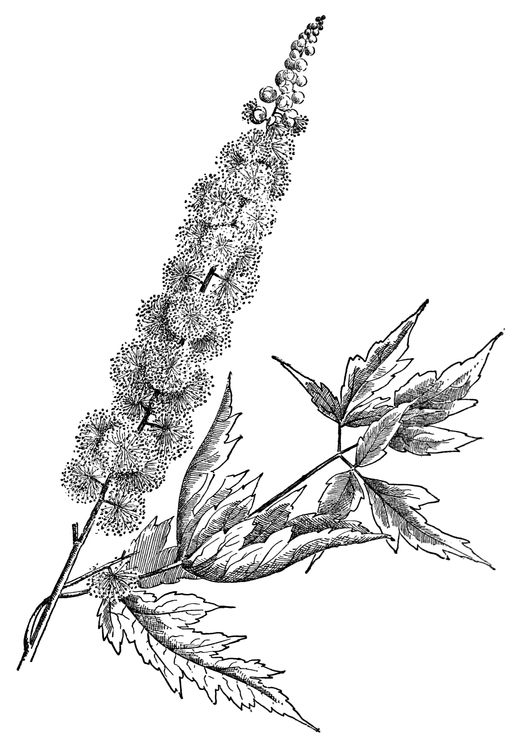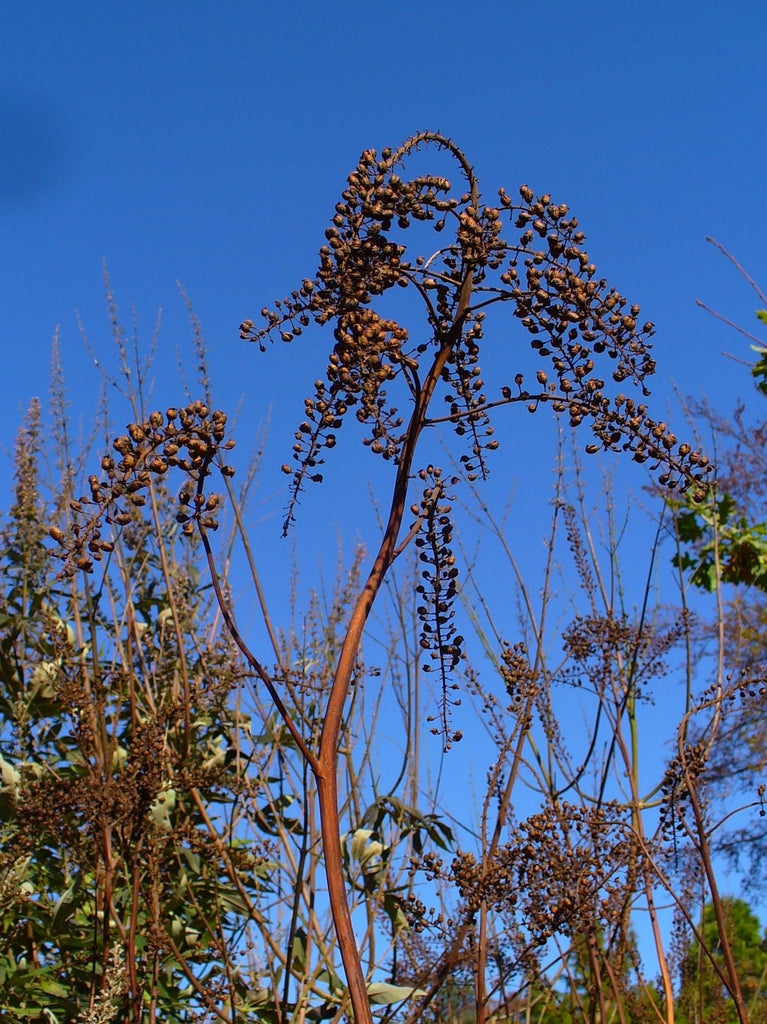Honey Petal Plants
Actaea racemosa - Black Cohosh
Actaea racemosa - Black Cohosh
Couldn't load pickup availability
Sizes available: 2 quart
Basics: zones 3-7, 48-72" x 48", part shade, white bloom in July-August, soil fairly heavy, acid-neutral, somewhat adaptable but prefers consistent moisture and 2-3 hours of morning sun
Synonym: Cimicifuga racemosa
Common names: Black Cohosh, Black Bugbane, Black Snakeroot, Rattle-top, Fairy Candle
Family: Ranunculaceae
Origin/Distribution: eastern North America. Not native to Maine, but a garden escapee in parts of New England
Habitat: Deciduous woodland openings, rich and moist, but adaptable
More: Nectar for pollinators! Black Cohosh is fragrant, although its scent is not to everyone's liking, and makes a good cut flower. It is an herbaceous, architectural perennial that is a charismatic understory connector between lower layers and woodland shrubs. The plant has numerous medicinal properties, including the treatment of menopausal symptoms. However, as with many medicinal plants it also contains potentially toxic components. It is a larval host for Celastrina ladon (Spring Azure) and Celastrina argiolus (Holly Blue), both of which are native to Maine. This northeastern native is not native to Maine, but is naturalizing in southern Maine. It prefers a few hours of morning sun or a dappled woodland.
Nursery: Honey Petal Plants
Image credits, in order of appearance: Inflorescence by H. Zell through Creative Commons; Wikimedia Commons; Growth Habit (in quite a bit of sun!) by H. Zell through Creative Commons; Wikimedia Commons; Seedheads by H. Zell through Creative Commons. All of H. Zell's images are on the North Carolina Extension Gardeners Plant Toolbox
